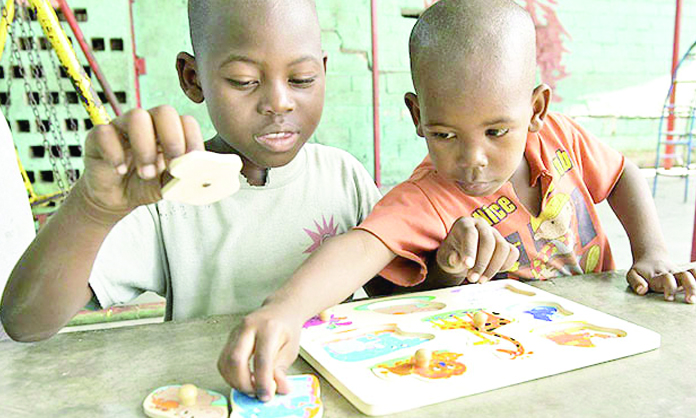The United Nations International Children’s Fund (Unicef) says Namibia has insufficient early childhood development services in almost all regions.
This was announced in Unicef’s ‘Country Office Annual Report 2022’, which was released last week.
The report says only one in five children of three years and older attend early childhood development centres due to inadequate facilities.
“Less than a quarter of educarers are qualified due to low institutional capacity and incentives to train and retain educarers at scale,” the report reads.
According to the deputy executive director of education, arts and culture, Edda Bohn, the provision of early childhood development centres is still overseen by the Ministry of Gender Equality, Poverty Eradication and Social Welfare.
“Resource allocation is very low. This is the main reason. And early childhood development caregivers are not professionalised yet,” she says.
The report states that Namibia was part of the ‘disrupting harm’ study, which indicated that 20 000 of internet-using children are subject to online sexual exploitation and abuse.
“The findings informed the strengthening of national systems and improved early interventions to safeguard children,” the report says.
The report says the education ministry continues to prioritise education, with more focus on children from vulnerable and poor communities and those with disabilities.
“Pupils enrolled have increased from 822 574 in 2021 to 839 579, and the number of schools has increased from 1 723 to 1 966 in 2022,” Unicef says.
Moreover, the report says many children remain without birth certificates – especially in the Kavango West, Zambezi, Ohangwena and Oshikoto regions.
Ministry of Home Affairs, Immigration, Safety and Security spokesperson Magret Kalo recently raised her concerns on the increasing number of people visiting the ministry to acquire birth certificates.
She encouraged mothers to register their babies, despite absent or unknown fathers.
“Once the father decides to show up at a later stage, the ministry will insert his particulars on the child’s birth certificate,” she said.
The report says measles-rubella coverage was 56%, which is a decline from MR1 coverage of 91%.
“This indicates a high dropout rate and the failure of the health system to reach older children,” the report reads.
According to the report, oral polio vaccine coverage stood at 73%, reflecting challenges with stock-outs at points of care.
“The measles outbreak in June 2022 demonstrates that children remain vulnerable to vaccine-preventable diseases,” the report says.
Stay informed with The Namibian – your source for credible journalism. Get in-depth reporting and opinions for
only N$85 a month. Invest in journalism, invest in democracy –
Subscribe Now!






